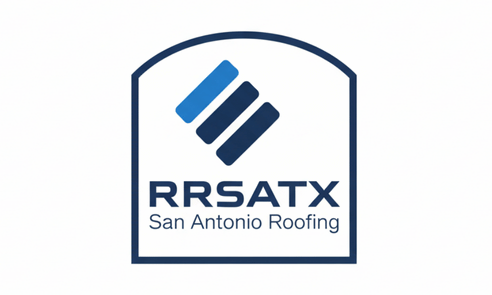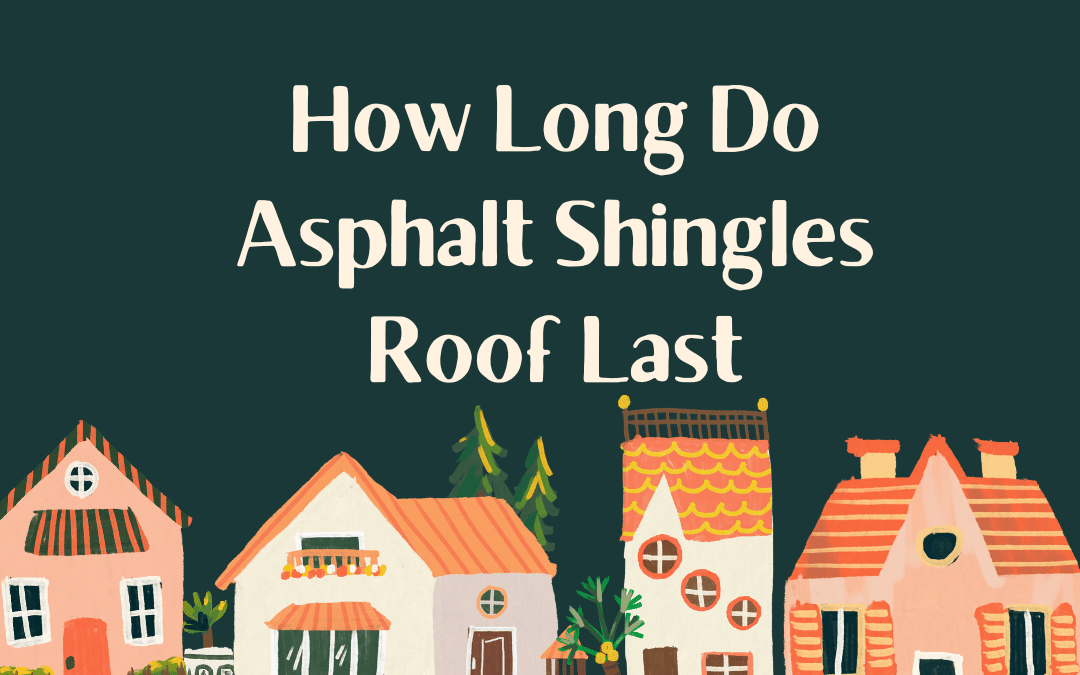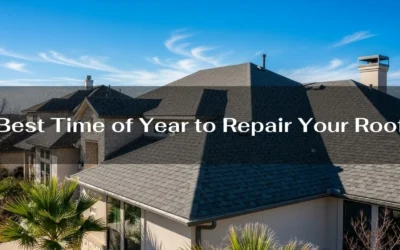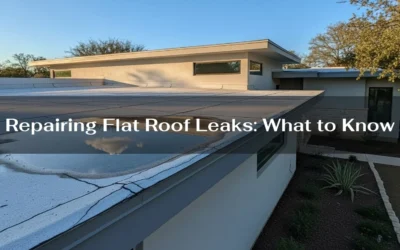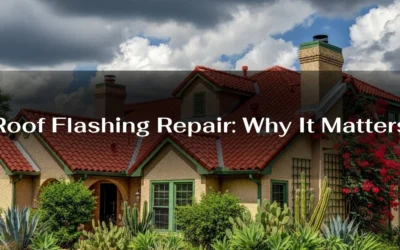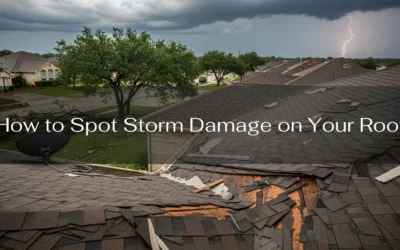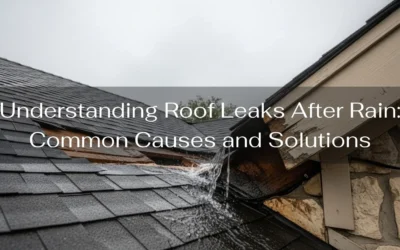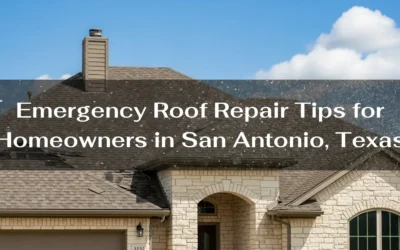Understanding the intricacies of your home’s protection starts with knowledge about your roof’s material. Asphalt shingles stand out among various options due to their optimal balance of affordability, durability, and aesthetic versatility. This comprehensive guide delves into the expected lifespan of asphalt shingle roofs, factors that can influence their durability, and measures to extend their service life. A well-maintained asphalt roof safeguards your dwelling and enhances your home’s overall value.
Understanding Asphalt Shingles
The Composition of Asphalt Shingles:
Asphalt shingles consist of a fiberglass mat coated with asphalt and granules, providing a robust barrier against environmental elements. They come in three-tab, architectural, and premium types, all varying in durability, aesthetic appeal, and cost. Recognizing the differences helps homeowners make informed decisions based on their needs and environmental conditions.
Why Asphalt Shingles Are Preferred:
Asphalt shingles remain a preferred choice for homeowners because of their lower initial investment and installation ease. Beyond cost-efficiency, they offer a range of styles and colors to complement various architectural themes, enhancing curb appeal while providing reliable protection.
The Average Lifespan of Asphalt Shingles
General Expectancy for Different Types:
While three-tab shingles can last about 20 years, architectural and premium shingles extend up to 30 years or more, thanks to their thicker, more resilient design. However, these numbers aren’t absolute; local conditions and maintenance frequency significantly influence longevity.
Manufacturer’s Warranty Versus Realistic Lifespan:
A manufacturer’s warranty often suggests a confident lifespan but is not an ultimate assurance. Numerous factors, including installation quality, local climate, and maintenance consistency, play substantial roles in determining the actual lifespan of your asphalt shingles.
Factors Affecting the Durability of Asphalt Shingles
Environmental Conditions:
Extreme weather conditions, scorching heat, freezing temperatures, or storm winds directly impact your roof’s longevity. Specific regional factors, like humidity and sea salt for coastal areas, can also accelerate wear and tear, necessitating more frequent inspections and maintenance.
Installation Quality:
The expertise behind your roof’s installation significantly affects its lifespan. Incorrect shingle alignment, improper nail use, or inadequate sealing can lead to premature aging or damage, underlining the need for hiring experienced roofing professionals.
Roof Maintenance and Repairs:
Consistent maintenance prolongs your roof’s life. This involves regular inspections, immediate repairs, and proactive preventive measures to address vulnerabilities. Delaying essential repairs can exacerbate damage, leading to costly replacements sooner than expected.
Ventilation and Insulation:
Adequate attic ventilation and insulation directly influence your roof’s lifespan, preventing moisture buildup and temperature extremes that could warp or crack the shingles. It’s vital to ensure these systems work efficiently to avoid underlying damage.
Prolonging the Life of Your Asphalt Shingle Roof
Regular Inspection Schedules:
Routine professional inspections can identify minor issues, addressing them before they escalate into significant problems. These evaluations, ideally conducted bi-annually or after severe weather events, safeguard structural integrity and investment.
Timely Repairs and Maintenance:
Addressing timely repairs is crucial. Whether replacing displaced shingles or handling water damage, immediate interventions maintain the roof’s condition and aesthetic, ultimately extending its service years.
Proper Upkeep Strategies:
Investing time in upkeep, like cleaning gutters and removing debris, along with professional treatments for moss and algae, preserves shingle condition. Such attention to detail prevents premature deterioration, securing long-term roof health.
Investment in Quality:
Selecting premium materials and skilled installers might be pricier upfront, but the extended lifespan and reduced frequency of repairs provide financial benefits in the long run. Quality investments result in reliable, durable roofs.
Recognizing When Replacement is Inevitable
Signs of Critical Wear and Tear:
Indicators like curling shingles, chronic leaks, or significant granule loss signify that a roof is nearing its end. When these signs emerge, homeowners should consider proactive replacements to prevent catastrophic failures.
Evaluating Your Roof’s Age and Functionality:
Analyzing the roof’s current state, considering its age, performance issues, and aesthetic condition, aids in assessing whether a repair or a complete replacement is more viable. Persistent problems might indicate the need for a comprehensive overhaul.
The Cost-Benefit Analysis of Replacement vs. Repair:
Sometimes, continual repairs may cost more in the long run than a complete replacement, especially when factoring in peace of mind and the value added to your home. Homeowners need to weigh these factors when deliberating roof investments.
Conclusion:
In conclusion, the lifespan of an asphalt shingle roof hinges on various factors, from the selection of material to the regularity of maintenance. While these roofs are engineered for durability, they require an active effort from homeowners to reach their maximum potential lifespan. Proactive care and professional guidance ensure your roof’s longevity, securing your home’s safety and enhancing its value.
Is your asphalt shingle roof in need of an inspection or care? Contact our seasoned professionals for a comprehensive roof evaluation, maintenance services, or consultation on repair and replacement options.
CALL US FOR FREE ROOF INSPECTION
1. How long do asphalt shingle roofs typically last?
Asphalt shingle roofs can last anywhere from 15 to 30 years or more, depending on various factors.
2. What factors affect the lifespan of asphalt shingle roofs?
Factors like climate, maintenance, quality of materials, and installation can all impact how long asphalt shingle roofs last.
3. Can the climate affect the lifespan of asphalt shingle roofs?
Yes, extreme weather conditions, such as heavy rain, strong winds, and hail, can shorten the lifespan of asphalt shingle roofs.
4. Do asphalt shingle roofs in hot climates last as long as those in moderate climates?
Asphalt shingle roofs in hot climates may have a slightly shorter lifespan due to the increased exposure to UV radiation and heat.
5. How does regular maintenance affect the longevity of asphalt shingle roofs?
Regular inspections and maintenance, such as cleaning debris and replacing damaged shingles, can help extend the lifespan of an asphalt shingles roof.
6. Can poor installation impact how long an asphalt shingles roof lasts?
Yes, improper installation can lead to premature roof failure, significantly reducing its lifespan.
7. Do higher-quality asphalt shingles last longer than cheaper ones?
Generally, higher-quality shingles with better materials and warranties tend to last longer than cheaper, lower-quality options.
8. What are some signs that my asphalt shingles roof needs replacement?
Signs of an aging roof include curling, cracking, missing shingles, leaks, and visible granule loss.
9. Can I extend the lifespan of my asphalt shingles roof with repairs?
Minor repairs can help extend the life of an asphalt shingles roof, but eventually, a replacement may be necessary.
10. Is it possible to re-roof over existing asphalt shingles?
Yes, it’s possible to layer new shingles over old ones, but it’s important to consider local building codes and the added weight on the roof.
11. How does proper attic ventilation affect the lifespan of an asphalt shingles roof?
Good attic ventilation helps regulate temperature and humidity, reducing the risk of premature shingle deterioration.
12. Can moss and algae growth impact the lifespan of asphalt shingle roofs?
Moss and algae can trap moisture and cause shingles to deteriorate faster, so regular cleaning can help extend a roof’s life.
13. Are there specific maintenance tasks I should perform to prolong the life of my asphalt shingles roof?
Regular cleaning of debris, inspecting for damage, and promptly addressing any issues can help extend your roof’s lifespan.
14. Are there any environmental factors that can affect asphalt shingles’ longevity?
Environmental factors like air pollution and proximity to the ocean can impact shingle lifespan.
15. Can hail damage significantly reduce the lifespan of asphalt shingle roofs?
Hail damage can compromise the integrity of shingles, potentially leading to premature roof failure.
16. Do asphalt shingle roofs come with warranties, and how do they affect lifespan expectations?
Many asphalt shingle manufacturers offer warranties that can give you an idea of how long the shingles are expected to last.
17. Can regular roof inspections by professionals help extend the life of an asphalt shingles roof?
Yes, professional inspections can catch issues early and prevent them from worsening, ultimately extending your roof’s life.
18. How often should I have my asphalt shingles roof inspected by professionals?
It’s generally recommended to have your roof inspected by professionals every 2-3 years or after significant weather events.
19. What steps can I take to maximize the lifespan of my asphalt shingles roof after installation?
Regular maintenance, proper ventilation, and addressing issues promptly are key steps to maximize your roof’s lifespan.
20. When should I consider replacing my asphalt shingles roof, even if it hasn’t reached its expected lifespan?
If your roof is experiencing significant issues like leaks, widespread damage, or frequent repairs, it may be time to consider replacement, even if it hasn’t reached its expected lifespan.
